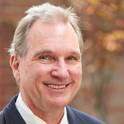
Contribution to Book
1. Where researchers fear to tread: Interpretive differences among testifying experts in child sexual abuse cases.
Expert witnesses in child abuse cases: What can and should be said in court
(1998)
Abstract
Debates regarding the admissibility of expert testimony in child sexual abuse cases are often characterized as between clinicians and researchers. Clinicians base their judgment on personal experience and anecdotes, whereas researchers base their judgment on scientific findings. Clinicians are willing to testify that a particular child has been sexually abused, whereas researchers cautiously avoid rendering a judgment about any particular case. Clinicians believe that they can interpret children's statements and behaviors to validate abuse, whereas researchers warn that children's statements and behaviors may be shaped by adults, including clinicians. Clinicians are happy to testify (typically for the prosecution), comfortably adopting the role of advocate for their position. Researchers reluctantly agree to testify (typically for the defense) and are unhappy having done so, finding their neutrality challenged by the inherently adversarial nature of the trial. In short, clinicians rush in where researchers fear to tread.
Keywords
- child abuse,
- child witness,
- interpretive differences,
- testifying experts,
- child neglect
Disciplines
Publication Date
August, 1998
Citation Information
Lyon, T. D., & Koehler, J. J. (1998). Where researchers fear to tread: Interpretive differences among testifying experts in child sexual abuse cases. In S. Ceci & H. Hembrooke (Eds.), Expert witnesses in child abuse cases: What can and should be said in court (pp. 249-263). Washington, DC: American Psychological Association.
